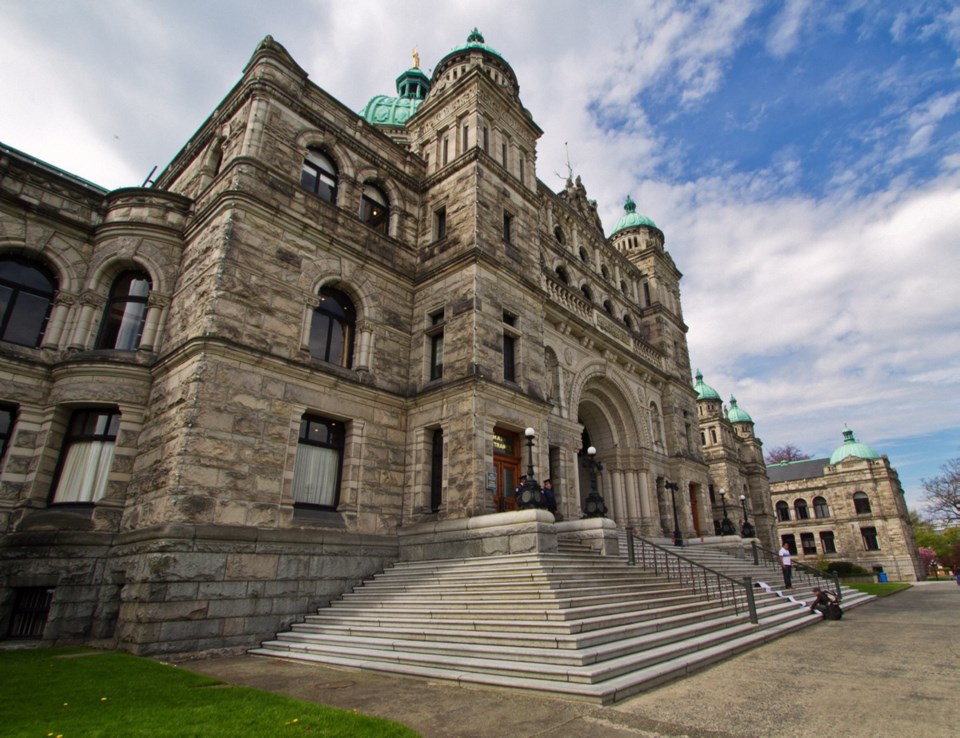A big crowd of tourists gawked their way into Victoria Harbour aboard the Coho on Thursday, Americans turning the Fourth of July into a four-day holiday.
Can’t blame them for rubber-necking. The prettiest views of Victoria are from the deck of that ferry, one postcard after another sliding by as it pulls in to dock.
A note of caution, though: You might not want to do like me and take the Coho the same day you publish a column scoffing at Homeland Security, “bureaucratic flailing in the name of security,” “publicly funded paranoia” and “security spending that is wildly disproportionate to the probability of attack.”
“I read your piece,” said the U.S. border patrol guy as he checked my passport that day. He was good-humoured, though, even after I popped open my computer to reveal a screensaver of me standing in a marijuana grow-op.
It always seemed ludicrous, the idea of hunting for mad bombers in places like Victoria, as though Osama would be found cowering in the back of some Wisconsin retiree’s Winnebago. Just as it takes a certain conceit to think the world is going to come to an end in your lifetime, it also takes a certain conceit to think of your town as terrorism Ground Zero. Besides, the cost of bubble-wrapping every possible (as opposed to probable) target would bankrupt us. (Remember 2009, when a security expert called for armed guards on all major B.C. Ferries sailings?)
Then came this Canada Day, when hell froze over. A bomb plot was uncovered in Victoria. We were left to re-evaluate the question of where and how to fight terrorism, and at what cost to the taxpayer, economy and personal freedoms.
Security costs money. In response to 9/11, Canada set up a handful of National Security Enforcement Teams, RCMP-led outfits that also include the spy agency CSIS and Canadian Border Services Agency. (The Vancouver-based team oversees a unit in Victoria.) It was INSET that handled the Canada Day case, Project Souvenir.
Two weeks ago, we saw approval of another measure, the U.S. Coast Guard and RCMP finalizing the Shiprider agreement that will see both agencies team up for cross-border law enforcement. Boaters between Vancouver Island and Washington state can expect to be stopped by U.S. Coast Guard vessels in Canadian waters and RCMP boats on the American side.
Some funding has dried up. This spring saw the disappearance of the four reserve Mounties — retired officers working part time on contract — who had been based at Victoria airport since 2006 as part of a post-9/11 program.
In a time of cost-cutting, security is as susceptible as anything else; would you rather government spent your taxes on safety or, say, health care? (And note that in April the auditor general chided Ottawa for not being able to account for $3.1 billion of the $12.9 billion it spent on counter-terrorism between 2001 and 2009.)
Not that we spend anything like the U.S., which has beefed up its B.C.-Washington border presence in a big way. (The best story: A car doing 110 km/h on a Bellingham-area highway was chased down after it set off a border patrol agent’s radioactivity-sniffing device; it turned out the car was carrying not a nuclear bomb, but a cat that had just received radiological treatment.) In 2011, a $5.7-million building was erected near Port Angeles to house the border patrol’s 40 north Olympic Peninsula agents, 10 times as many as were employed five years earlier.
For us, the most impactful post-9/11 change involved not people but passports, cross-border travel numbers plunging after document rules were tightened. After a decade of passport requirements (the fee just jumped to $120 from $87 on July 1), sniffer dogs, $26 airport security charges, three-hour check-ins, no-fly lists, carry-on bans and full-body scans — not to mention friskings so intimate that they should be followed by a bouquet of flowers in the morning — the question remains whether it’s all effective or worth it.
But now, after the Canada Day arrests, a new wrinkle: What’s the cost of laughing off the improbable?



